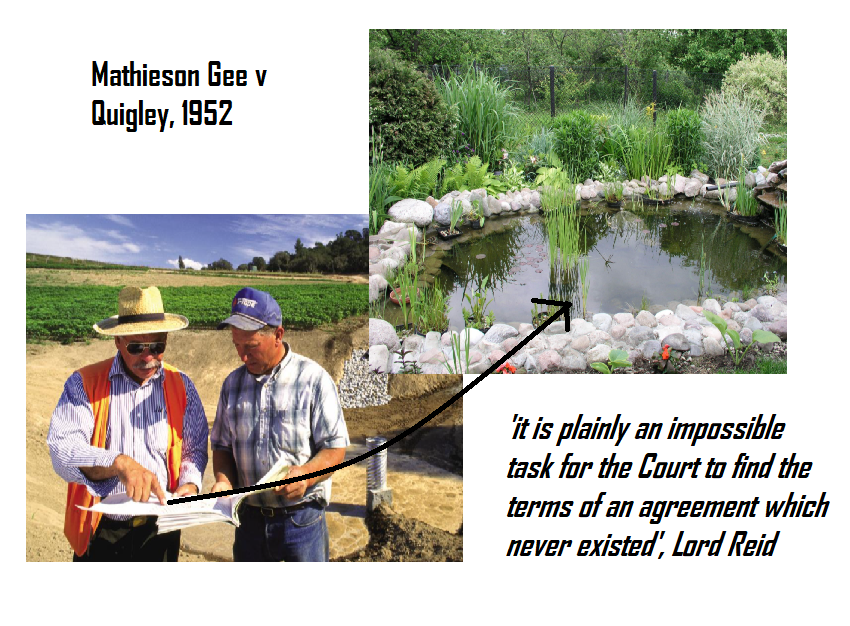Mathieson Gee Ltd v Quigley, [1952] UKHL 2
Citation:Mathieson Gee Ltd v Quigley, [1952] UKHL 2
Rule of thumb:If there is disagreement over whether a contract was for the hire of property or the hire of services, is a contract formed? No, this is classic example of a contract being void based upon essential error. If the nature of the contract, namely services or equipment, is not agreed and clear, then this is an essential error making the contract void.
Background facts:
The basic facts of this case were that the 2 parties exchanged a letter each with a view towards forming a legally contract to remove silt from a pond. Quigley wanted a contract for services for Mathieson to remove the silt, and Mathieson wanted to provide the equipment for hire to do this – 2 fundamentally different contracts by nature – one for services, and one for hire of moveable goods. Both went to Court to try to force the other one to do as they wished.
Judgment:
The Court held that there had never been any agreement reached on what was actually to be done. The Court affirmed that there was an essential error in the contract over the subject matter making it null and void. The Court also affirmed that they are entitled to find a contract null and void even if neither of the parties had made this plea in the course of the case.

Ratio-decidendi:
‘It is necessary, therefore, to consider whether it is open to a Court to decide that there was no consensus in idem and therefore no contract when neither party has any plea to that effect. In my opinion, it must be open to a Court so to decide. No doubt, if an agreement could be spelled out from the documents, the Court in such circumstances would be inclined to do that and proceed to determine what were its terms. But, if it clearly appears to the Court that the true construction of the documents is such as to show that there was no agreement, then it is plainly an impossible task for the Court to find the terms of an agreement which never existed’, Lord Reid
'it is plainly an impossible task for the Court to find the terms of an agreement which never existed', Lord Reid
Warning: This is not professional legal advice. This is not professional legal education advice. Please obtain professional guidance before embarking on any legal course of action. This is just an interpretation of a Judgment by persons of legal insight & varying levels of legal specialism, experience & expertise. Please read the Judgment yourself and form your own interpretation of it with professional assistance.

